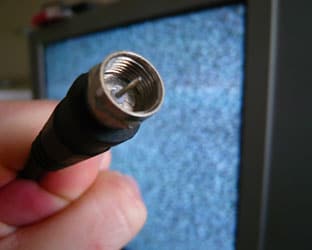Following the Senate hearing on retransmission consent, the National Association of Broadcasters noted that big pay TV had its own self-serving motives for trying to bring government intervention into the process, and noted that broadcasters needed the system left alone to continue to provide key programming to local viewers. And a wide variety of others weighed in as well. Here is an omnibus collection of commentary.
* NAB’s Dennis Wharton: Today’s hearing demonstrated that pay TV companies are cynically seeking government intervention into private business negotiations that are successfully concluded more than 99 percent of the time. If the pay TV giants succeed, there will be further migration of top sporting events like the Super Bowl and the World Series away from free TV, and a reduction in financial resources that sustains the delivery of quality foreign language programming, local news and entertainment to more than 30 million Americans who rely exclusively on over-the-air television.
* American Cable Association’s Matt Polka: Today’s hearing held by Sen. John Kerry (D-MA) demonstrated that members of Congress don’t believe that retransmission consent negotiations are conducted in a purely free-market setting. A watershed event, this Senate hearing exposed that retransmission consent is a rigged game that broadcasters exploit to gouge millions of consumers who subscribe to pay-TV service. As Sen. Kerry suggested, these consumers are the same people who let TV stations use publicly owned spectrum worth billions of dollars for free.”
* ivi TV’s Todd Weaver: Consumers should not be used as pawns any longer in big media’s chess game over control of the public airwaves. Instead of fewer options and higher fees, they should have more control over their own entertainment options, which is possible with innovations like ivi TV. (ivi calls for institution of consumer choice through a la carte channel opt in or opt out ability.)
The Subcommittee on Communications, Technology and the Internet flagged the following excerpts from testimony at the 11/17/10 hearing:
* Sen. Jay Rockefeller (D-WV): If you fail to fix this situation, we will fix it for you. But when we do, we will seek to do more than referee your corporate disputes. Because more than just retransmission consent ails our television markets. We need new catalysts for quality news and entertainment programming. We need slimmed down channel packages that better respect what we really want to watch. And we need to find ways to provide greater value for television viewers at a lower cost.
* Sen. John Kerry (D-MA): I am concerned that without a better, more transparent process for dealing with impasses in negotiations and adequate FCC oversight, more fights and disruptions of service will come, prices for consumers will rise, and independent programming will get crowded out.
* Time Warner’s Glenn Britt: Retransmission consent negotiations occur in a vastly different environment today. The pay TV industry has become robustly competitive, while local broadcasters have retained their government-granted monopolies and other benefits that now distort carriage negotiations. Under these rules, pay TV providers are limited to dealing with only one broadcast supplier in a local market. This has allowed broadcasters to play multiple distributors off of each other and has encouraged broadcasters to take more extreme, disruptive positions rather than to seek compromise. Consumers, caught in the middle, are the ones getting hurt.
* Univision’s Joe Uva: I certainly understand concerns by elected officials that their constituents not have to face even the temporary loss of a favorite station’s signal on cable or satellite. But we are very concerned that government mandates – such as requiring Univision to keep providing our programming to a distributor even where we failed to reach a deal – would distort the market by removing our distributors’ primary incentive to reach agreement.
* Cablevision’s Tom Rutledge: Retransmission consent negotiations do not take place in a free market but rather under an umbrella of statutory provisions and FCC rules that heavily favor the broadcaster over the cable operator or multi-channel video programming distributor (MVPD). It is a scheme based on a perception of the video marketplace that is 20 years out of date. As a result, consumers are increasingly faced with broadcast blackouts, threats of blackouts, and spiraling fee increases. This is because of outdated laws and regulations that literally put the government at the negotiating table. These laws reward brinksmanship and blackout threats with higher fees, undermining the very public interest that the law is intended to support.
* News Corporation’s Chase Carey: The retransmission consent law is experiencing growing pains because broadcasters like Fox are, for the first time, seeking cash compensation for their content. But the good news is, the actual interruptions in service are few and far between, and this period of adjustment will be short-lived once distributors accept that they have to pay a fair price for the right to re-sell broadcast content just like they have to pay for all the other content they provide to their customers. Keeping the focus on consumer education and protection is the most effective and efficient way to help consumers weather this temporary and short-lived unrest.
* Ovation’s Charles Segars: This is a call for a level playing field. If large broadcasters are allowed to use the airwaves owned by all Americans to extract payment for historically free TV service, then let’s not allow them to bundle all their other services with it. If an alternative dispute resolution process for distributors and programmers is to be considered, do not limit it only to those programmers who are trading on retransmission consent, but open that dispute process to all programmers, including the few remaining independent ones.




